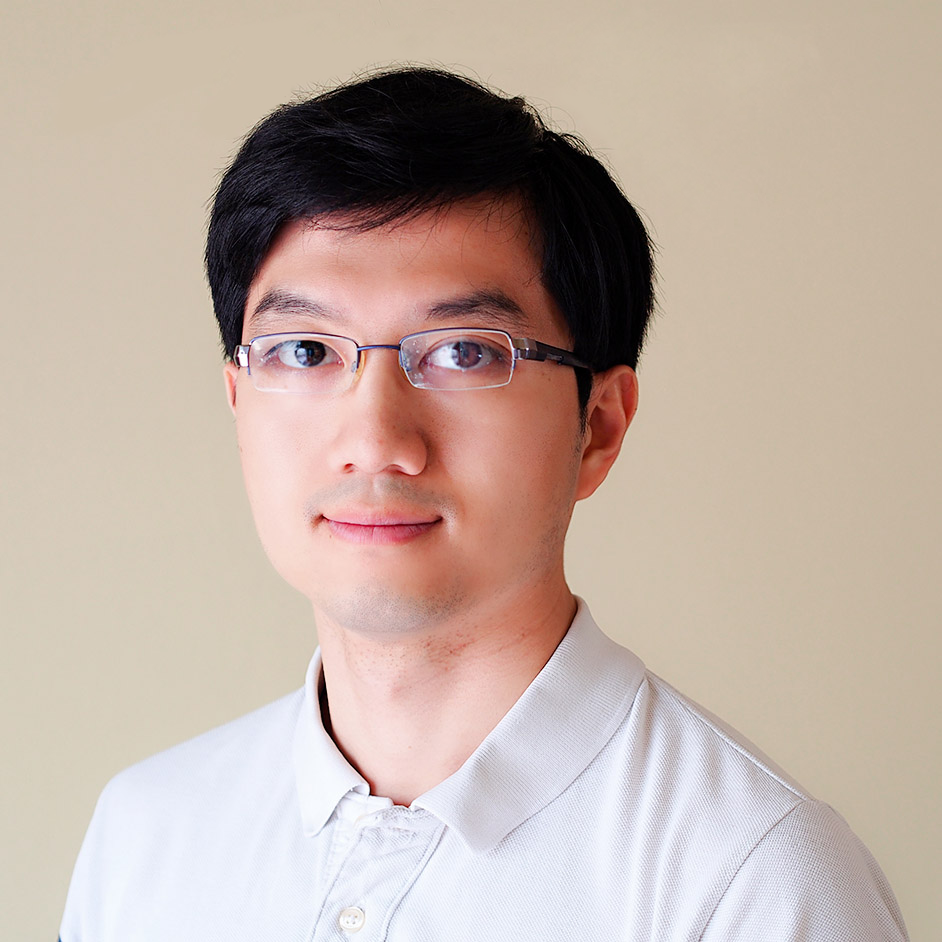In September’s blog post, we feature an interview with Dr. Tian Hong, Assistant Professor of Biochemistry & Cellular and Molecular Biology, University of Tennessee, Knoxville.

When did you first become interested in mathematics and biology?
I may not have a good answer for how my interest in “mathematics and biology” started, so I’ll give one for “mathematical biology”. I was first intrigued by the equations that I saw in my bioinformatics course at my undergraduate institution. They were rarely found in biology courses, and I thought they were cool. That was my initial interest in using quantitative approaches to understand biology. To be honest, I hardly knew anything about mathematical biology before joining a Ph.D. program, but I feel fortunate that I started my formal graduate training with a mathematical biologist.
Was the decision to do a Ph.D. an obvious and easy choice? And how did you come to run your own group?
Yes, it was a very easy decision for me to do a Ph.D. I knew that I liked problem solving, making discoveries and intellectual freedom. It took me a few years to decide on the area of my Ph.D. study though. I never regretted my careful decision of joining a mathematical/computational biology program, and I had wonderful experiences at the Genetics, Bioinformatics and Computational Biology program of Virginia Tech.
I did my postdoctoral training at the Center for Complex Biological Systems at University of California, Irvine, which offers many interdisciplinary research opportunities. I realized that there are so many interesting problems to solve in systems/mathematical biology. During my postdoc, I decided to look for faculty positions with which I could explore those questions and train younger scientists independently. I was offered a position at The University of Tennessee, Knoxville, and I started my group here in 2017. I am very grateful that I have been working with supportive mentors and collaborators in all three institutions.
What are your main research questions and why are they interesting?
My group is interested in how cells make decisions with their complex molecular interaction networks. Under this theme there are many questions that I’m working on. For example, how do some cells decide on their fate in a stepwise fashion during development? How do cells maintain and change their shapes and polarity? How is accurate tissue patterning achieved through cell fate decisions? How does differentiation generate multiple types of cells with desired proportions? While answering these questions requires many different mathematical and experimental tools, we are primarily focused on addressing them from the viewpoint of gene regulatory networks. To achieve the goals, we try to combine dynamical systems theories, simulations, and analysis of multiple types of experimental data.
It’s cool to think about how cells use chemical reactions to perform computations and make decisions. Dynamics of networks in biology is a fascinating topic because they can be both very complex and very simple. They are complex because of their large sizes as well as the variety of interaction modes. Yet, simple biological networks can achieve non-intuitive dynamics and perform crucial cellular functions. Finding patterns in complex systems in our cells is very satisfying, and it always amazes me how evolution has come up with neat solutions to challenging problems.
What makes you passionate about your work?
Interesting problems to solve and amazing people to work with. Interdisciplinary collaboration is at the heart of mathematical biology, and I think that’s what makes my job exciting and fun. Working in the field, I get to work with many colleagues who have very different skills and styles for research. Communicating science with people from different disciplines is a challenge and a treat, and it’s a great joy to come up with new ideas by crossing disciplines.
Do you have any advice for someone considering a career in mathematical biology?
Working in math bio means that you will need some knowledge in a wide range of subdisciplines of mathematics and biology. Don’t be intimidated by skills or research areas that you are unfamiliar with. Keep your curiosity about everything alive, solve one small problem at a time, and let the scientific questions lead you to different areas. It will be a long and fun journey.
Math bio has become an attractive field for people with mathematical background, which is fantastic, but I also hope to see more young biologists considering a career in mathematical biology.
What do you like to do in your spare time outside of work?
The two young kids keep me busy these days when I’m not working. I like walking with family, and we enjoy our occasional visits to the nearby Great Smoky Mountains, especially for the fall foliage. I always wanted to see the synchronized fireflies at the Mountains, partially for the love of mathematical biology, but I haven’t gotten a chance to do it yet.